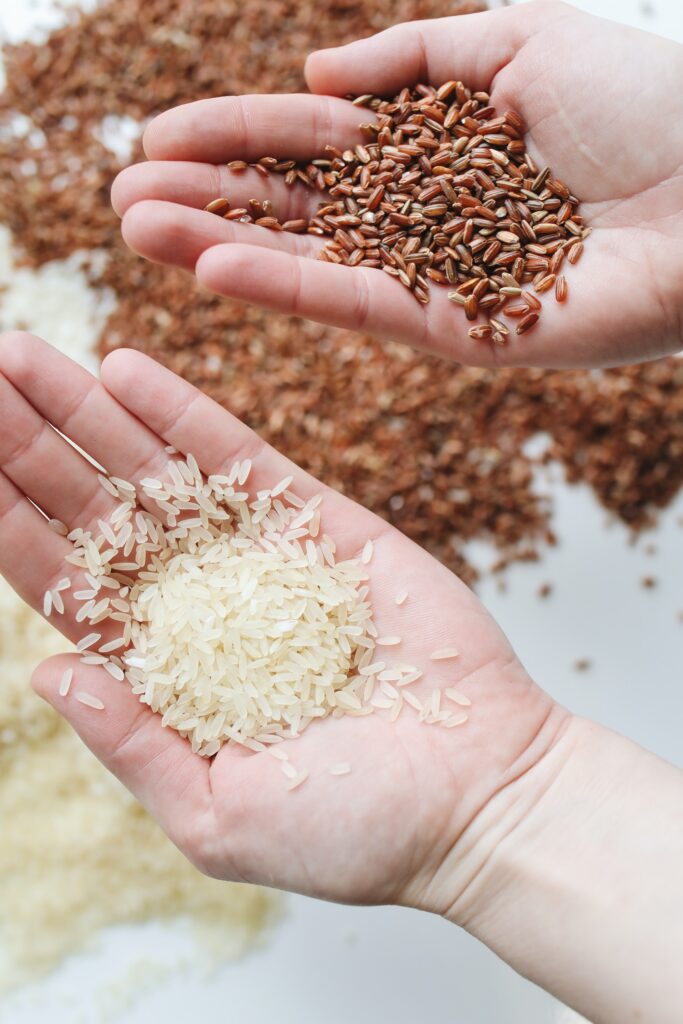7 Tips for Balanced Nutrition in Seniors: Nourishing Well-Being
Contents
Read DISCLAIMER
Discover essential tips for balanced nutrition in seniors to support overall health and well-being. Learn how to create a nutrient-rich diet that promotes vitality and a high quality of life during the golden years.

Introduction:
Maintaining good nutrition becomes more and more important as we age in order to maintain a healthy and fulfilled existence. Seniors’ quality of life is significantly improved by balanced diet, which also helps to promote health, manage chronic illnesses, and manage aging. In this thorough guide, we’ll examine seven useful suggestions for ensuring balanced nutrition in seniors, offering perceptions and methods to assist elderly citizens in making wise food decisions..
7 Tips for Balanced Nutrition in Seniors
1. Prioritize Nutrient-Dense Foods

Pick entire foods like fruits, vegetables, whole grains, lean meats, and healthy fats that are high in important elements. The vitamins and minerals present in these meals boost general health and energy.
2. Stay Hydrated

For seniors, maintaining appropriate hydration is essential. Dehydration can result in a number of health problems, so try to drink enough water throughout the day.
3. Include Protein-Rich Foods

Include lean protein sources in your diet, such as tofu, beans, lentils, fish, chicken, and fish. Protein is necessary for immune system health, tissue healing, and muscle maintenance.
4. Embrace Healthy Fats

Choose the heart-healthy fats that are included in avocados, almonds, seeds, and olive oil. These fats help the circulatory system, promote brain function, and act as a steady energy source..
5. Mindful Portion Control

In order to prevent overeating and support a healthy weight, pay close attention to portion proportions. Reduce portion sizes by using smaller dishes and bowls to avoid consuming too many calories.
6. Prioritize Fiber-Rich Foods

Whole grains, legumes, and vegetables are examples of foods high in fiber that help with digestion, gut health, and blood sugar control.
7. Consult a Registered Dietitian

Create a specialized nutrition plan that takes into account your individual needs, tastes, and any underlying medical concerns by working with a licensed dietitian or nutritionist.
Incorporating Balanced Nutrition into Your Routine
To include balanced nutrition into your daily life, take these concrete steps:
Plan Balanced Meals:
Strive to incorporate a range of nutrient-rich meals into each meal, with an emphasis on fruits, vegetables, lean meats, and whole grains.
Choose Snacks Wisely:
To stave off hunger between meals, choose healthy snacks like Greek yogurt, fresh fruit, and almonds.
Cooking at home:
To have more control over your eating choices, make meals at home using fresh ingredients.
Read Labels
To determine the nutritional value of packaged foods, read the food labels carefully.
Stay Active:
Exercise regularly to improve general health and to supplement your efforts at balanced diet.
FAQs (Frequently Asked Questions)
When maintaining a healthy diet, may seniors occasionally indulge in treats?
Absolutely OK, you may indulge in sweets in moderation. Finding the right mix between wholesome foods and rare treats is key.
Should elderly use dietary supplements?
Some older citizens may benefit from supplements, while a healthy diet is the cornerstone of good health. Before include supplements in your routine, speak with a healthcare provider.
What portion control strategies can I use to avoid overeating?
Your ability to judge portion sizes and prevent overeating can be improved by using smaller dishes, bowls, and utensils.
What are some quick strategies to boost your fiber intake?
Increase the amount of whole grains, beans, fruits, and vegetables you include in your meals. These foods have a lot of fiber by nature.
Is it typical for hunger to alter with aging?
Aging does really cause changes in appetite. Pay attention to your body’s hunger and fullness cues and concentrate on nutrient-dense meals.
Conclusion: A Nutrient-Powered Journey
Healthy aging is based on balanced diet, which enables seniors to live active, fruitful lives. You may improve your general well-being, manage health concerns, and enjoy your senior years by implementing these seven suggestions and adopting a healthy diet.

Thanks for sharing. I read many of your blog posts, cool, your blog is very good.
Your article helped me a lot, is there any more related content? Thanks! https://accounts.binance.com/pt-PT/register?ref=DB40ITMB
Great blog here! Also your website loads up very fast! What host are you using? Can I get your affiliate link to your host? I wish my website loaded up as fast as yours lol
Your point of view caught my eye and was very interesting. Thanks. I have a question for you.
It抯 really a great and useful piece of information. I am glad that you shared this helpful information with us. Please keep us informed like this. Thanks for sharing.
Please provide me with more details on the topic http://www.kayswell.com
Your article helped me a lot, is there any more related content? Thanks!
Thank you for your sharing. I am worried that I lack creative ideas. It is your article that makes me full of hope. Thank you. But, I have a question, can you help me? https://www.binance.info/uk-UA/register-person?ref=W0BCQMF1
Thank you for your sharing. I am worried that I lack creative ideas. It is your article that makes me full of hope. Thank you. But, I have a question, can you help me? https://www.binance.info/ar/register?ref=V2H9AFPY
Thanks for sharing. I read many of your blog posts, cool, your blog is very good.
Thank you for your sharing. I am worried that I lack creative ideas. It is your article that makes me full of hope. Thank you. But, I have a question, can you help me?